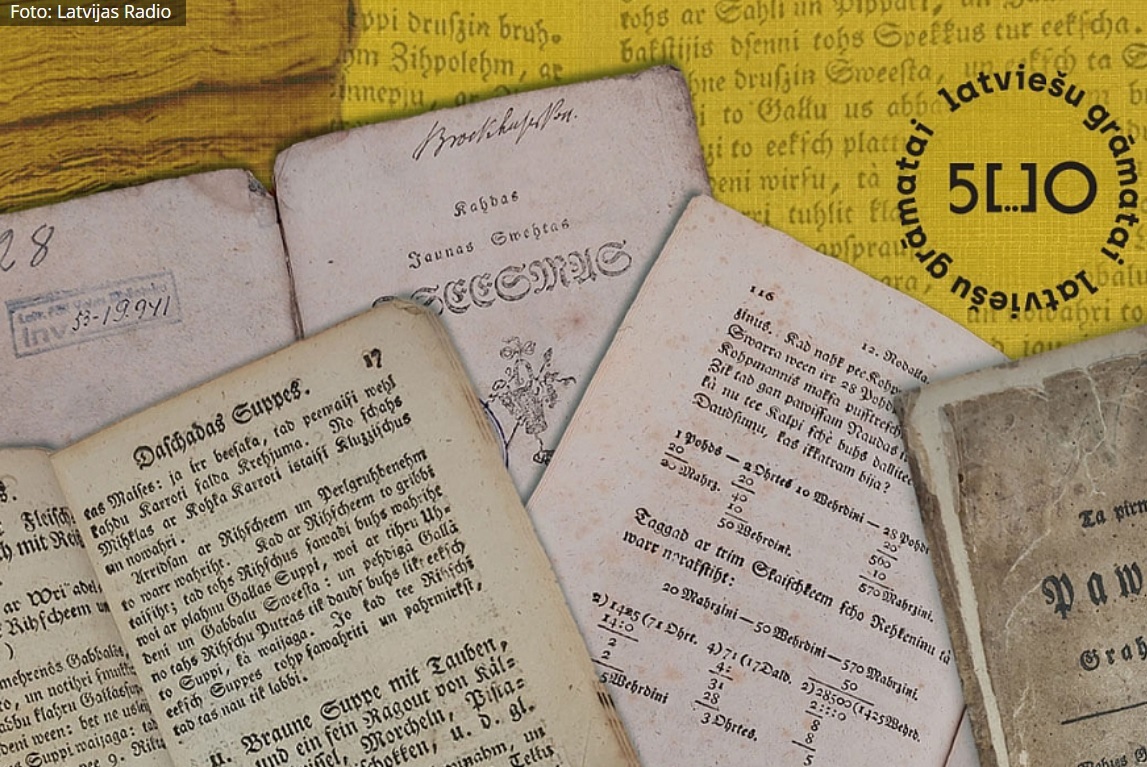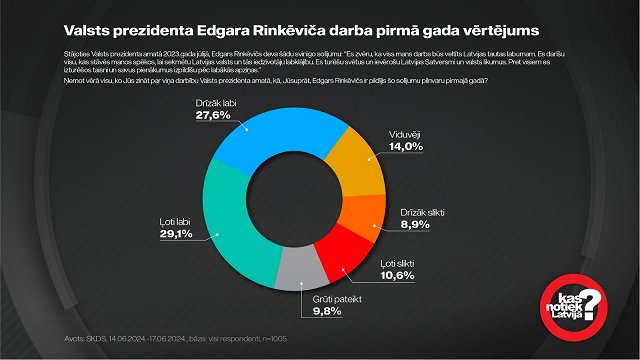More about the cycle of events can be discovered at https://www.gramatai500.lv/ and for more about the Latvian National Library and its constantly changing exhibitions and collections, visit: https://www.lnb.lv/.
From beekeeping to rescuing the drowned – the origins of practical advice books
The Age of Enlightenment is most often associated in Latvian book publishing with 'Old Stender', and also with one of the other more well-known works of his successors – for example, Žūpu Bērtulis or Robinson Crusoe. But few people know that another genre of literature was born in this era – books of practical advice.
Christoph Harder's Ta pirma Pawaru Grahmata (The First Cookery Book, 1795) is mentioned in the Latvian Radio programme “Grāmatai pa pēdām” [Tracing the Footsteps of Books]. Recipes for the manor kitchen have recently been reissued and can also be read online. Harder's work is just one of many: in the period between the mid-18th and mid-19th centuries, some 50 books of advice were published in Latvian, supplemented by an almost countless number of articles in calendar supplements, newspapers and magazines.
The range of topics covered is broad – advice on farming, animal husbandry, gardening, beekeeping, potato and clover cultivation, merino sheep farming, financial literacy and healthy living, reviving drowning survivors and first aid. This is the beginning of information circulation which listeners of the Latvian radio programme “Kā labāk dzīvot” [How to Live Better] or readers of the magazine Praktiskais Latvietis [The Practical Latvian] are a part of today.
Creating the exhibition "Bees, Smallpox, Potatoes: The Beginnings of Practical Advice Books", together with my colleague Beata Paškevica at the National Library of Latvia, the first thing that came to mind were parallels with today.
Sometimes, however, it takes some effort to remember that our ancestors more than two hundred years ago were not so different from us with their daily worries, concerns and needs.
They, too, were putting meals on the table, looking for medicine to cure headaches, thinking about what to wear and what laundry detergent to use, looking for ways to earn money, getting or refusing vaccinations, some were struggling with addictions... And all this is recorded in the pages of books.
Here you can find fascinating observations of everyday life, research material for linguists and historians, or simply – if you manage to make sense of the old orthography and the unique features of the literary language of that time – it is a fascinating read today that can both amuse one with its naivety and unintentional comedy, and motivate you to enter into the spirit of a bygone world.
The Baltic German pastors, country noblemen, doctors and civil servants who wrote or translated these books thought deeply about how to persuade their readers. Sometimes they shared their personal experiences – during the Enlightenment a number of pastors were more interested in agriculture than in theology. At other times, they wove their advice into works of fiction that were full of sentimental experiences and unexpected plot twists.
Poems about potatoes and a play about smallpox vaccination
There were manifold reasons why the educated elite chose to write. The ideas of peasant enlightenment that originated from German-speaking countries were motivation for raising the level of education in the countryside through the use of the printed word. The books of advice were also one link in the chain of an international network of Enlightenment ideas which included the Baltic provinces. Often the publication of books was linked to philanthropy. Yet of course this was also a calculated undertaking – an educated farmer could bring more profit to the manor.
Today it is difficult to give a clear answer to the question whether the books made an impact on readers. Some advice, especially advice that was translated from German books could not be carried out at all under serfdom. Often farmers preferred to rely on the knowledge and intuition they had inherited from previous generations not the wisdom of books, thus causing irritation for the authors of the advice.
But there were also cases where the content found in books proved to be useful and usable – even if members of the older generation of the household objected, arguing that nothing good could be expected from pastors and their writings.
Preparations for celebration of the 500th anniversary of Latvian books in 2025 have proved to be an excellent impetus to remember forgotten books and to bring them out of the rare books collections. Unassuming in appearance and mundane contentwise, advice books are more than just instructions: they are an important step forward in the history of books and reading.
































